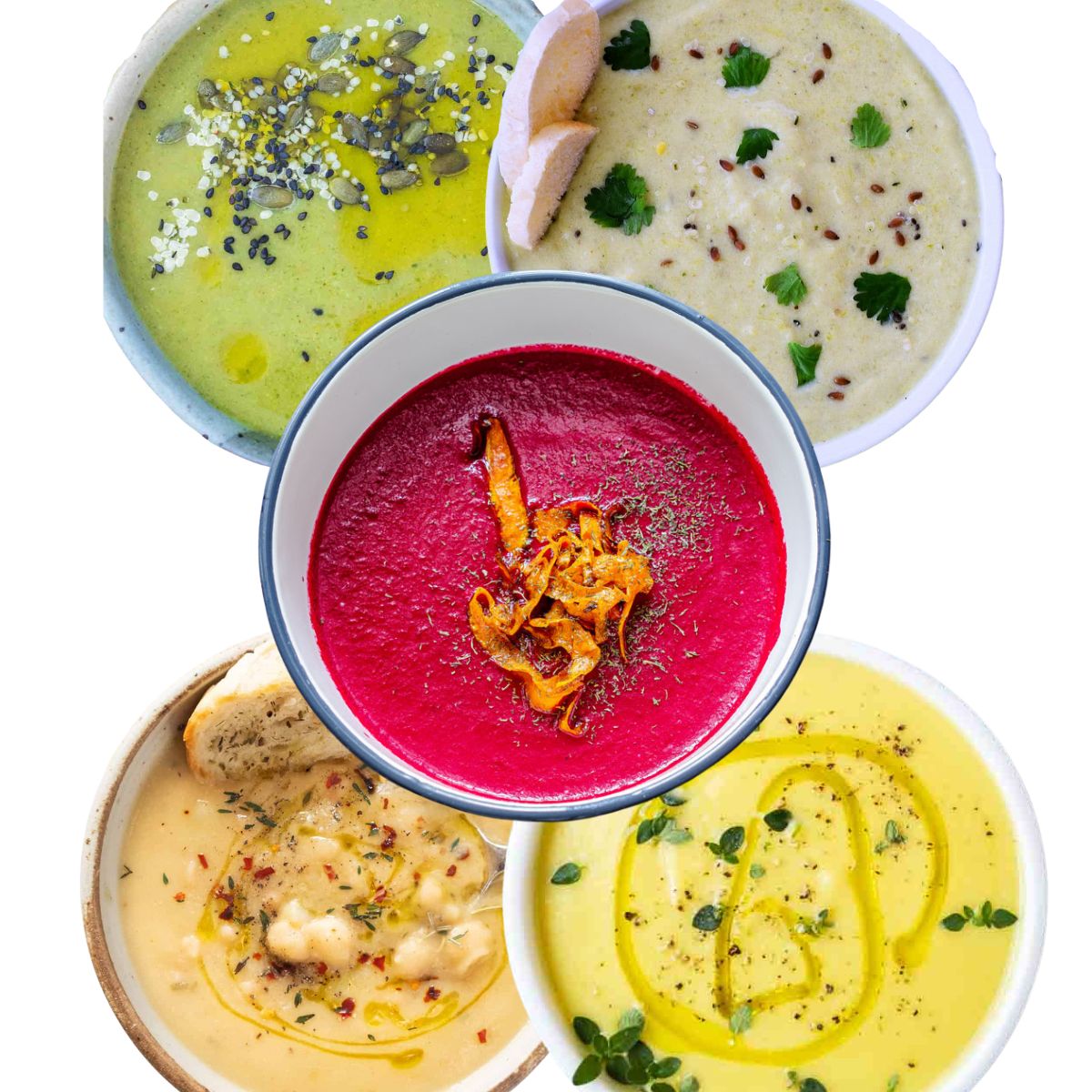What Gen Z wants from influencer marketing and brand social media
More than 30 Gen Z creators and marketers spoke at JUV Consulting’s recent ZCon event in Los Angeles.

Gen Z has remained a highly sought-after consumer demographic among brands for the better part of a decade, driving marketers to develop campaigns and social strategies designed to resonate specifically with this age cohort. But many marketers have continued to fall short when it comes to connecting with Gen Z––and it’s often due to the simple fact that rather than working with Gen Z to craft those campaigns and social media posts, marketers look to agencies and consultancies speaking on behalf of these younger consumers.
That’s why, earlier this month, digital marketing agency JUV Consulting set out to reorient the conversation around how brands can best appeal to Gen Z consumers by turning the stage over to the cohort those marketers are aiming to reach. At JUV’s two-day, Gen-Z-oriented conference, ZCon, the speaker lineup of marketers, creators and entrepreneurs exclusively belonged to Gen Z, those born between 1997 and 2012.
Recent news: 20 brands catching Gen Z’s attention
ZCon’s nearly three dozen speakers included creators such as Schuyler Bailar and Kahlil Greene and marketers such as Duolingo’s global social media manager Zaria Parvez; Jacqueline Banal, social media editor at youth media company Complex Networks; and Sol Betesh, co-founder and CEO of social content studio Fallen Media.
For JUV, launching ZCon stemmed from the team’s brewing frustration with Gen Z regularly being left out of marketing and strategy discussions that directly relate to the generation, JUV’s co-founder and CEO Ziad Ahmed said at the start of the conference.

Ziad Ahmed, JUV Consulting’s CEO and co-founder, started the agency while still in high school.
Credit: ZCon
“What ZCon is all about is about taking the microphone back and saying that, ‘If you all want to connect with Gen Z, if you want to talk so much about Gen Z, you have to talk to us,” Ahmed said. “There are so many conversations about us that do not center our voices, and it’s time for that to be passé, and for that to be a part of the past.”
Ad Age Gen Z Contributor Column
We welcome those 26 and younger to submit fresh takes exploring Gen Z within the ad industry
Here are five insights into what Gen Z consumers are looking for from brands and marketers—directly from Gen Z.
Swap an ‘always on’ social strategy for an ‘always there’ approach
In recent years, brands and social media marketers have touted an “always on” social strategy—one that centers around frequent, consistent posting—as the ideal approach to social media. But Parvez shared that the true key to Duolingo’s runaway social success has been rooted in an “always there” strategy that instead prioritizes online community management, such as replying to comments and popping up in other users’ comments sections, and positioning the brand’s green owl mascot, Duo, as an influencer that participates in the “same trends that you and I are going to do” as social media users.
If social content isn’t rooted in what Gen Z consumers are organically hearing about, seeing and even taking part in while spending time on social media, it doesn’t matter how frequently a brand posts content, she said during a panel.
For Duolingo, being able to quickly jump onto social trends and pop culture moments stems from the brand infusing a “social-first mindset” into every element of the company, including its legal team, Parvez said. The legal team prioritizes social content reviews, and its approval process ranges from 10 minutes to two hours, she said, with two-hour review times reserved for “the really risky content.”
Read more about Duolingo’s social media strategy
And for older marketers who might feel out of touch with Gen Z, Parvez emphasized that it isn’t just Gen Z’s age that makes them so in tune with social media trends or hot topics—it’s about how immersed they are in online culture.
“Age is actually not [Gen Z’s] superpower, because you’re going to grow older [and] new generations will come,” she said. “I think there’s this emphasis that [older people] feel like they might be irrelevant or they’re not going to get it. But honestly, it’s just a matter of being on the platforms and then connecting with the people who do get it and learning off of each other.”
Ad Age Media Summit
Hear from industry leaders during October event in NYC
‘Representation’ in influencer campaigns is still falling short
In a panel centered around how brands should approach working with diverse creators, the four speakers unanimously agreed marketers have significant room for improvement.
For many people from marginalized groups, seeing themselves represented in media, including ad campaigns, is essential to their sense of self-worth. Bailar, the first openly transgender NCAA Division 1 swimmer and an LGBTQ+ activist, told the audience he has received multiple messages from transgender people who told him that seeing his frequent posts on social media helped stop them from committing suicide.
Nearly 20% of “transgender and nonbinary young people” attempted suicide in 2022, according to a recent survey from the Trevor Project.
“I think what happens for a lot of trans youth, me included, is we stop seeing our ability to exist in the future,” Bailar said. “That’s what having no representation causes: the inability to see oneself in the future.”
The panelists pointed to a lack of diversity among the leadership teams of the brands and companies developing influencer campaigns as a key factor limiting the representation of marginalized creators. Activist Nupol Kiazolu stressed that racist marketing, such as the backlash against H&M after it had a Black child model a sweatshirt reading “coolest monkey in the jungle,” is the result of brands “not having the right faces in the room.”
Additionally, Kiazolu highlighted the enduring pay gap between creators of color and their white counterparts and the need for brands to provide payment to creators of color for campaigns tied to heritage months such as Black History Month and Asian American and Native Hawaiian/Pacific Islander Heritage Month.
“It’s actually quite insulting … [when] I see a white person come into the room that’s been here for a year, and I’ve been in here for 11 years, yet the brand has more willingness to actually pay a white person what they’re worth versus a Black person that has been doing this work and has laid down the groundwork for the [white] person to come into this space,” she said. “I’ve had enough exposure. I need to be respected and paid for my time.”
Gen Z appreciates creator-led businesses
Gen Z has always been more concerned than previous generations about the values and actions of the people behind the brands they buy from. Now, as influencers such as Emma Chamberlain and MrBeast, among others, pivot to business ownership, Gen Z consumers are increasingly supporting their businesses because they’re familiar with the creators running them.
“With the ecosystem we’re in right now, from a brand and consumer perspective, there is so much in the market right now,” said Pragathi Guruprasad, a singer, actor and co-founder of skincare brand Soma Ayurvedic. “There are so many brands that are coming up now because there’s more creators than ever [and] more celebrities than ever. In terms of what you want out of a leader who’s building right now, intention and vision are so important.”
Over 56% of Gen Z consumers consider it “extremely” or “very” important that a brand’s founder is someone they “trust or admire” according to a recent consumer trends report from The New Consumer and Coefficient Capital. And 44% of those respondents said they prefer creator-founded brands to those without an influencer founder.
More news: DTC founders as influencers

JUV Consulting employees and ZCon attendees took part in a mid-conference dance party.
Credit: ZCon
Gen Z has a ‘love-hate relationship’ with social media
Though Gen Z is often associated with excessive social media use, a number of panelists brought up their negative feelings toward the social media platforms that have been part of their lives since childhood. Jules Terpak, a creator whose content focuses on the impact of digital culture on people’s lives, said she’s actively looking to shift her content off of social media and develop a community in other mediums—potentially even including in-person meet-ups with fans.
“How I approach [social] platforms now is that they’re a starting point,” she said. “It’s a starting point for ideas, it’s a starting point for connections, but you want to move those offline as much as possible. In the creator world, it’s like … is what you’ve built on the internet sustainable in real life if this platform goes away?”
She pointed to the ongoing threat of TikTok being banned in the U.S. as a factor in her desire to separate her career from a strict reliance on social media.
In another panel, creators Brandon Farbstein and Karan Brar highlighted the negative comments they often see on their own posts and those of other creators. Brar revealed he no longer reads comments on his Instagram account because a single cruel comment will impact his mental health for months, and Farbstein called out TikTok for its limited moderation of hurtful comments on videos from creators with a disability.
TikTok is the new Google for Gen Zers
Over the past few months, marketers and analysts have pointed to the rising popularity of TikTok as a search engine substitute for Google among Gen Z. And Sophia Dennis, founder and CEO of Ghanaian theater and film production studio Phace Media, offered an anecdote during a panel confirming that trend is indeed true among both Gen Z and the generation after them, Gen Alpha. Dennis said that when spending time with her younger cousin recently, she told her cousin to “Google” the answer to a question she had, and that cousin began typing her query into TikTok’s search bar rather than Google’s. Dennis also shared that she, too, is increasingly using TikTok’s search function over Google’s search engine when seeking out explanations for “how to” content, such as how to fix something.
This change in where younger consumers are seeking out information effectively means search engines have “shifted into creator spaces,” she said, meaning search engine marketing may soon, in turn, pivot to TikTok and other social platforms.

 Lynk
Lynk 






























